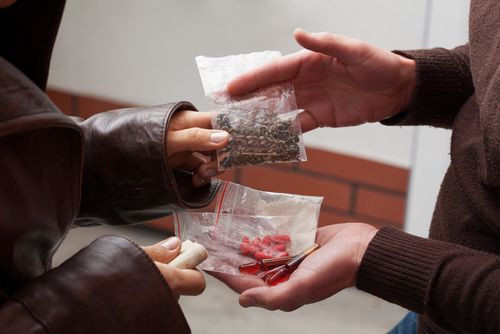Addicts Will Get The Help They Need When America Stops Stigmatizing Drug Abuse; It's A Mental Illness, Not A 'Moral Failing'

Though drug abuse and mental illness are both (sadly) attached to stigma, it’s the drugs Americans are unwilling to forgive. A majority of people are of the opinion drug addiction is a “moral failing,” not a medical condition — an opinon a new study published in Psychiatric Services found only exacerbates the number of drug-related deaths each year.
Researchers from the Johns Hopkins Bloomberg School of Public Health in Baltimore surveyed 709 people about their attitudes toward either mental illness or drug addiction — questions varied from stigma to treatment. Researchers found that only 22 percent of respondents said they were willing to work closely with someone with drug addiction, while 62 percent would work with someone with mental illness. Some went as far as to say (probably before leaving to shop at Hobby Lobby) that employers should be able to deny employment to people with drug addiction, though not with mental illness. Yet, as far as recovery is concerned, about three out of 10 of the total respondents agree it's impossible.
"The more shame associated with drug addiction, the less likely we as a community will be in a position to change attitudes and get people the help they need," said Beth McGinty, study co-author and an assistant professor at Johns Hopkins, in a press release. "If you can educate the public that these are treatable conditions, we will see higher levels of support for policy changes that benefit people with mental illness and drug addiction."
Here’s the thing: drug abuse is often symptomatic of mental illness. According to the National Institute on Drug Abuse (NIDA), “compared with the general population, people addicted to drugs are roughly twice as likely to suffer from mood and anxiety disorders, with the reverse also true.” NIDA explained that this does not mean one causes the other or one appeared first, just that they've been found to feed each other. Additionally, there is science that shows addiction, whether it's of drugs or alcohol, significantly changes a person’s brain. These changes result in compulsive behaviors that weaken a person’s self-control, qualifying all of it as a complex, chronic brain disease. A disease the United Nations found kills upwards of 200,000 people each year worldwide.
Yet, the thing you hear most often when someone succumbs to drug abuse is that the person deserved it, that if they were going to abuse substances they knew were bad for them, they deserved to die. This reaction grossly trends each time it’s a celebrity death. Think Amy Winehouse, Cory Monteith, and Philip Seymour Hoffman. I guess it would be easy to write abuse off like that, to chalk it up to morals and anything that absolves the community of responsibility. But like the disease, it’s not that simple. Biology, the environment, and developmental stages in a person’s life have all been found to play a role in whether or not a person develops addiction. It's not something a person can quit on their own. They need help. More importantly, they need to know it's OK to need and seek help.
Perpetuating the idea that drug abuse is not a medical condition decreases the chances of a person knowing that very fact. In 2009, the Substance Abuse and Mental Health Services Administration reported 23.5 million peoples ages 12 and older needed treatment for an illicit drug or alcohol abuse problem — only 2.6 million, or a little over 11 percent of people, got it. Prolonged drug abuse inhibits the brain from recognizing when, and how, to manage treatment, so increased prevention programs and awareness, as well as acknowledging drug abuse as the medical condition it is, will be the only way those numbers sway in a better direction. Better yet, it's the only way those numbers cease to exist at all.
Source: Barry C, McGinty E, Pescosolido B, Goldman H. Stigma, Discrimination, Treatment Effectiveness, and Policy: Public Views About Drug Addiction and Mental Illness. Psychiatric Services. 2014.
Published by Medicaldaily.com



























